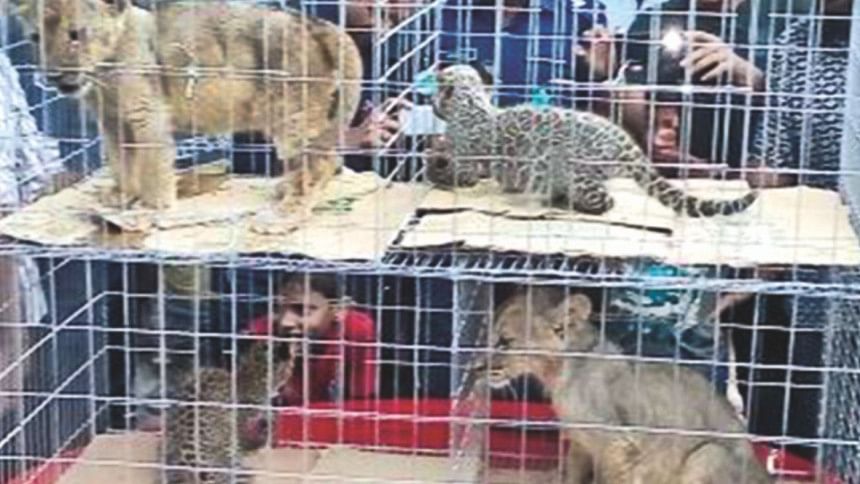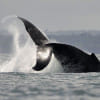Wildlife Trafficking: US lists Bangladesh as major transit point

A report of the US state department listed Bangladesh among the countries which are a major source, transit point or consumer of smuggled wildlife products and their derivatives.
The report titled “End Wildlife Trafficking” was submitted to the Congress on Thursday. The report listed Bangladesh and 25 other countries as “focus countries”. Three other countries were labeled as the “countries of concern”.
The report was submitted four days after four lion and leopard cubs were rescued from inside an SUV in Jessore near the Indian border.
The law enforcers were yet to figure out how the cubs ended up in the SUV but wildlife experts from the department of forest said those were definitely smuggled into Bangladesh as no lions or leopards had litters in any Bangladeshi zoos in the last three years.
“We are not sure how and when those were smuggled into Bangladesh,” said Zahidul Karim, conservator of forest (wildlife), Bangladesh forest department.
The cubs were sent to Gazipur Bangabandhu Safari Park.
According to documents, Md Khawaja Moinuddin of M/S Star Gold International, a recruiting agency office in Banani, owns the vehicle.
There were no senior officials at the agency office when The Daily Star correspondent visited last Thursday.
Identifying himself as Asaduzzaman, one of the two people present at the office said Khawaja was in Saudi Arabia and that they did not know anything about the cubs.
Police had arrested two people in the SUV -- Rana Bhuiyan and Md Kamruzzaman Babu, said Syed Bayejid Hossain, in charge of Chansara police camp in Jessore.
The cubs were apparently being smuggled to India, which is on the US state department's “focus countries” list along with Brazil, Burma, Cambodia, Cameroon, China, Democratic Republic of the Congo, Gabon, Indonesia, Kenya, Laos, Madagascar, Malaysia, Mexico, Mozambique, Nigeria, Philippines, South Africa, Tanzania, Thailand, Togo, Uganda, United Arab Emirates, and Vietnam.
The report said that being enlisted as a “focus country” did not indicate that the country was not working diligently to end wildlife trafficking. Many of those countries have strong political will to combat wildlife trafficking, it said.
Some of them were in partnership with the US to fight the problem, it said.
“Countries of concern” were those that had actively engaged in or knowingly profited from trafficking endangered or threatened species.
Madagascar, Democratic Republic of the Congo, and Laos were mentioned as “countries of concern”.
The US government is trying to combat this illegal trade at home and abroad by targeting three strategic priorities: strengthening enforcement; reducing demand for illegally traded wildlife; and building international cooperation.
It also plans to continue its dialogue with focus and concern countries to identify steps to thwart the crime, the report said.

 For all latest news, follow The Daily Star's Google News channel.
For all latest news, follow The Daily Star's Google News channel. 








Comments